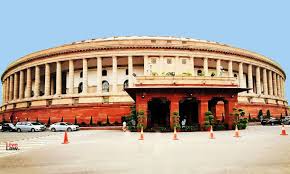CURRENT AFFAIRS
Get the most updated and recent current affair content on Padhaikaro.com
Electing a Speaker, Deputy Speaker
- IAS NEXT, Lucknow
- 22, Oct 2021

Hardoi MLA Nitin Agrawal has been elected Deputy Speaker of the Uttar Pradesh Assembly, which has barely five months left in its tenure.
How are they elected?
Article 93 for Lok Sabha and Article 178 for state Assemblies state that these Houses “shall, as soon as may be”, choose two of its members to be Speaker and Deputy Speaker.
- In Lok Sabha and state legislatures, the President/Governor sets a date for the election of the Speaker, and it is the Speaker who decides the date for the election of the Deputy Speaker.
- The legislators of the respective Houses vote to elect one among themselves to these offices.
Is it mandatory under the Constitution to have a Deputy Speaker?
Constitutional experts point out that both Articles 93 and 178 use the words “shall” and “as soon as may be” — indicating that not only is the election of Speaker and Deputy Speaker mandatory, it must be held at the earliest.
Their roles and functions:
- The Speaker is “the principal spokesman of the House, he represents its collective voice and is its sole representative to the outside world”.
- The Speaker presides over the House proceedings and joint sittings of the two Houses of Parliament.
- It is the Speaker’s decision that determines whether a Bill is a Money Bill and therefore outside of the purview of the other House.
- Usually, the Speaker comes from the ruling party. In the case of the Deputy Speaker of Lok Sabha, the position has varied over the years.
- The constitution has tried to ensure the independence of Speaker by charging his salary on the consolidated Fund of India and the same is not subject to vote of Parliament.
- While debating or during general discussion on a bill, the members of the parliament have to address only to the Speaker.
Tenure:
- Once elected, the Deputy Speaker usually continues in office until the dissolution of the House.
- Under Article 94 (Article 179 for state legislatures), the Speaker or Deputy Speaker “shall vacate his office if he ceases to be a member of the House of the People”.
- They may also resign (to each other), or “may be removed from office by a resolution of the House of the People passed by a majority of all the then members of the House”.
Powers of deputy speaker:
The Deputy Speaker has the same powers as the Speaker when presiding over a sitting of the House. All references to the Speaker in the Rules are deemed to be references to the Deputy Speaker when he presides.
States which have specified time-frame for holding the election:
The Constitution neither sets a time limit nor specifies the process for these elections. It leaves it to the legislatures to decide how to hold these elections.
For example, Haryana and Uttar Pradesh specify a time-frame.
In Haryana:
- The election of the Speaker has to take place as soon as possible after the election. And then the Deputy Speaker is to be elected within seven more days.
- The rules also specify that if a vacancy in these offices happens subsequently, then the election for these should occur within seven days of the legislature’s next session.
In Uttar Pradesh:
- There is a 15-day limit for an election to the Speaker’s post if it falls vacant during the term of the Assembly.
- In the case of the Deputy Speaker, the date for the first election is to be decided by the Speaker, and 30 days is given for filling subsequent vacancies.